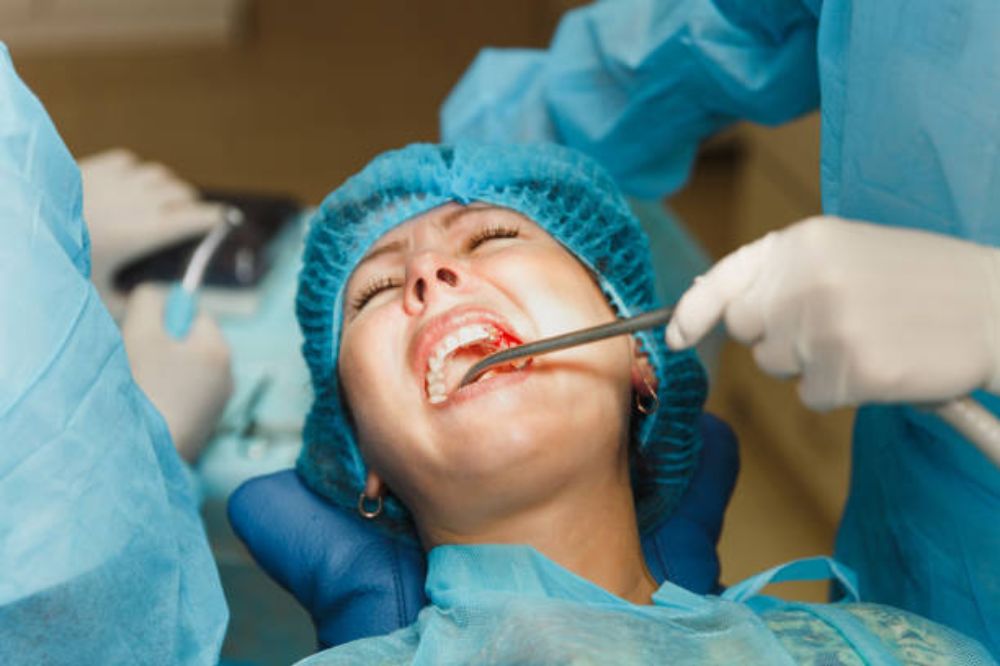
Have you been advised that you require periodontal surgery in Richmond, and are you terrified of the pain? A large number of patients experience apprehension before a gum operation, and they are uneasy about the pain and the recovery process. Knowing what to expect can help you relax your worries and get you ready for an easy recovery.
What is Periodontal Surgery, and Why is it Done?
Periodontal surgery is a treatment for severe gum disease that, in most cases, cannot be controlled by regular cleanings or medications only. The dentist may perform such an operation to adjust the gum tissue, remove the space between the tooth and the gum or promote bone growth. The aim is to reestablish the gingival health, halt the loss of teeth and enhance the oral function of the patient.
The right way to take care after your surgery and follow the care instructions given by your dentist in Richmond goes a long way in preventing complications and allowing the healing process to take place.
Understanding Periodontal Surgery Pain
People often expect a lot of pain when it comes to gum surgery, and it is only natural. Actually, most patients report the sensation of mild to moderate discomfort rather than severe pain. The amount of discomfort depends on such factors as:
- How complicated is the operation
- How many areas have been treated
- The person’s pain threshold
At the time of the operation, there is the possibility that you will feel discomfort, swelling, or even a slight tenderness around the area. Usually, the pain is at its worst within the first 24–48 hours and thus, it gets better gradually by a week or so.
How is Pain After Periodontal Surgery Managed?
Periodontal surgery pain management is carried out using a mixture of actions taken by the dentist and the patient’s routine at home:
- Local anesthesia or sedation to enable the comfort of the operation
- The use of painkillers, as per the doctor’s prescription or over-the-counter, following the advice of the dentist
- An ice pack wrapped in a thin towel is gently pressed on the face to relieve the swelling and numb the area
- Eating soft foods that do not irritate the wound
- Doing gentle oral hygiene to protect the mouth from infection while the healing tissue is not disturbed
Your dental team will give you very clear instructions on what to expect and how to effectively manage the pain.
What are the Tips to Make Recovery Smoother
In addition to pain management, these tips can help ensure a faster and more comfortable recovery:
- Rest adequately and avoid strenuous activity for a few days
- Rinse gently with a prescribed mouthwash or saltwater solution
- Avoid smoking or alcohol, which can delay healing
- Follow a soft diet until your gums feel more comfortable
- Attend all follow-up appointments to monitor healing progress
Protect Your Smile with Expert Gum Care!
Are you scared of suffering from gum surgery? Make the initial move that will lead you to healthier gums and a more powerful smile. Visit The Urban Dentist. Receive the care that is tailored for you, which is conducive to your comfort and prolonged oral health.
FAQs
Q1. How long does pain usually last after periodontal surgery?
Most discomfort improves within 7–10 days, though mild tenderness can persist for a few weeks.
Q2. Can I take over-the-counter medications for pain?
Most of the time, it is okay to use common pain relievers that are available over the counter, but you should always follow your dentist’s advice to use them safely.
Q3. Will anesthesia during surgery hurt?
Definitely not. The local anesthesia, or the use of sedation, numbs the area, and you will hardly feel any pain during the operation.
Q4. Can periodontal surgery cause nerve damage?
Serious nerve injury is rare. Your dentist carefully plans the procedure to minimize any risks.
Q5. How can I reduce swelling after gum surgery?
Use ice packs in 15–20 minute intervals and keep your head elevated while resting. Gentle rinsing, as advised, also helps reduce inflammation.





